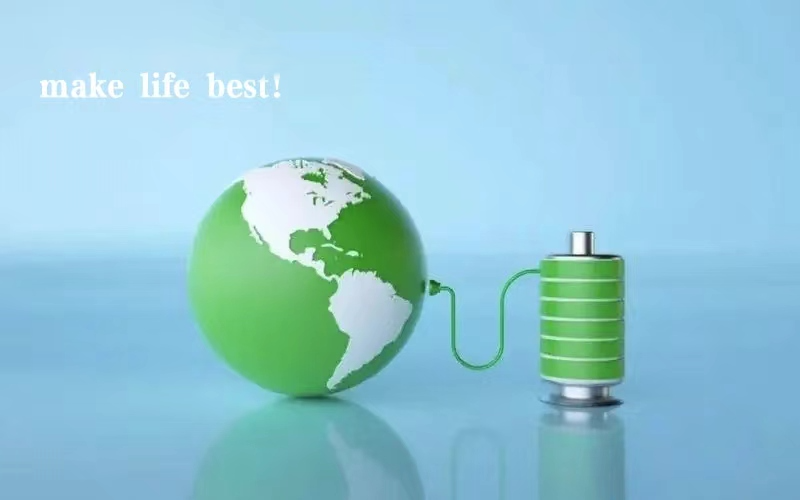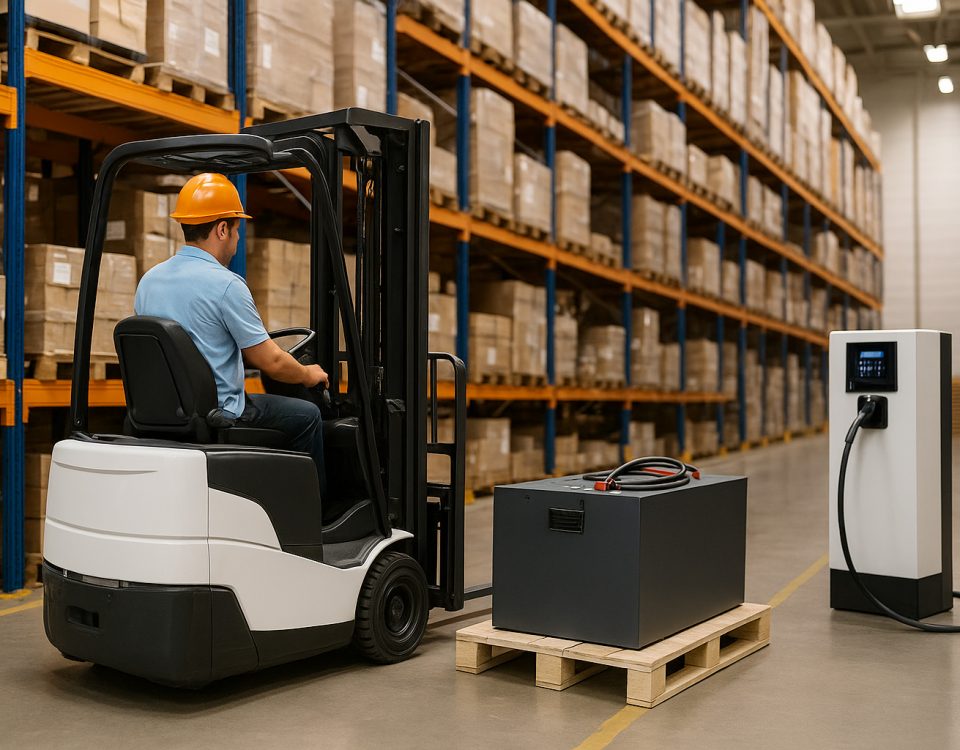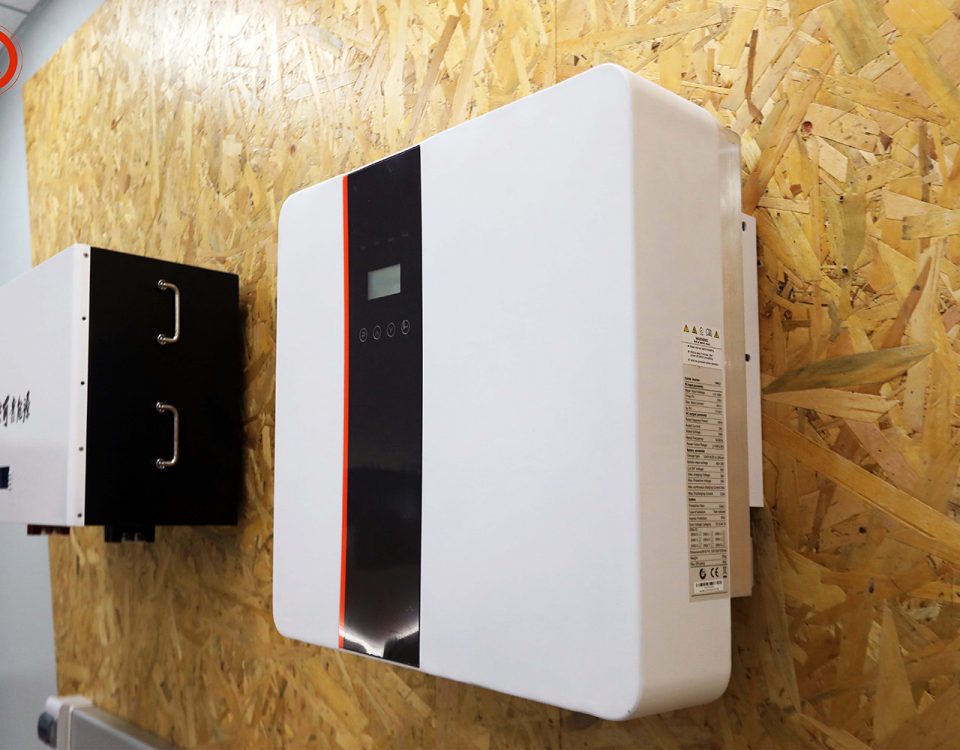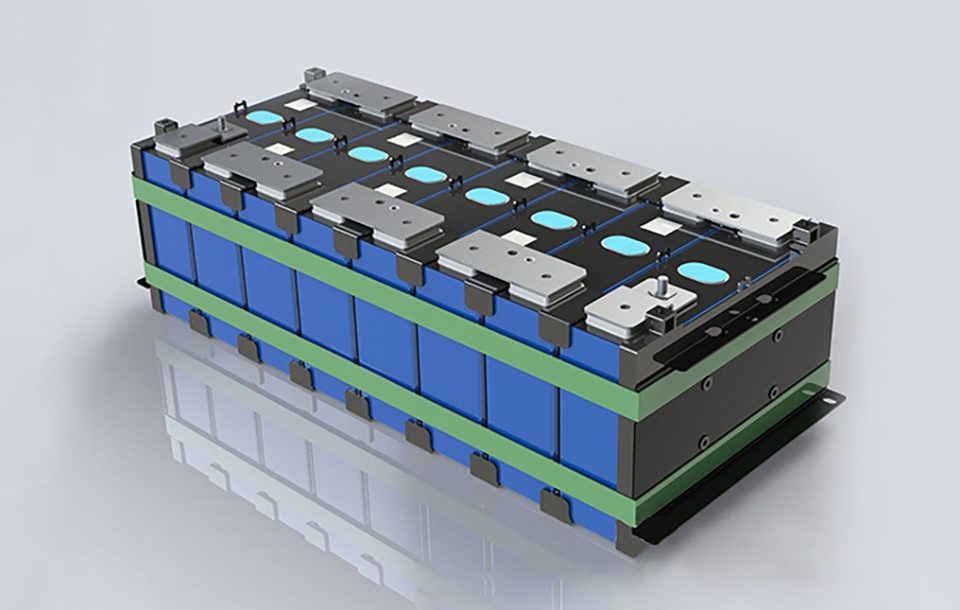การเปลี่ยนแปลงระดับโลกไปสู่พลังงานหมุนเวียนและความยั่งยืนถือเป็นหนึ่งในการเปลี่ยนแปลงที่พลิกโฉมยุคสมัยของเราที่สุด ในขณะที่ประเทศต่างๆ มุ่งมั่นที่จะลดปริมาณการปล่อยคาร์บอนและบรรเทาผลกระทบจากการเปลี่ยนแปลงสภาพภูมิอากาศ เทคโนโลยีหนึ่งโดดเด่นในฐานะปัจจัยสำคัญที่ขับเคลื่อนการเปลี่ยนแปลงนี้: แบตเตอรี่ลิเธียมไม่ว่าจะเป็นการขับเคลื่อนรถยนต์ไฟฟ้า การเก็บกักพลังงานแสงอาทิตย์ หรือการให้ความเสถียรแก่ระบบไฟฟ้า แบตเตอรี่ลิเธียมก็อยู่ในหัวใจของการปฏิวัติพลังงานหมุนเวียน แต่ทำไมมันถึงมีความสำคัญอย่างมากเช่นนี้? มาสำรวจกันว่าแบตเตอรี่ลิเธียมกำลังกำหนดอนาคตของพลังงานโลกอย่างไร และทำไมพวกมันถึงมีบทบาทที่ใหญ่ขึ้นในอนาคต
บทบาทของแบตเตอรี่ลิเธียมในการบูรณาการพลังงานหมุนเวียน
หนึ่งในอุปสรรคที่สำคัญที่สุดในภาคพลังงานหมุนเวียนคือ การหยุดชะงัก ของแหล่งพลังงานเช่นพลังงานแสงอาทิตย์และพลังงานลม. ดวงอาทิตย์ไม่ส่องแสงตลอดเวลา และลมไม่พัดตลอดเวลา ทำให้เกิดความไม่สมดุลระหว่างการจัดหาพลังงานกับการต้องการใช้พลังงาน. นี่คือจุดที่ การเก็บกักพลังงาน เข้ามา. แบตเตอรี่ลิเธียมให้โซลูชันที่มีประสิทธิภาพและสามารถปรับขนาดได้เพื่อเก็บพลังงานหมุนเวียนส่วนเกินในช่วงที่มีการผลิตสูง ทำให้มั่นใจได้ว่าพลังงานจะพร้อมใช้งานเมื่อจำเป็น
ต่างจากระบบกริดแบบดั้งเดิมที่พึ่งพาเชื้อเพลิงฟอสซิลเป็นอย่างมาก แหล่งพลังงานหมุนเวียนต้องการระบบเก็บกักพลังงานที่ยืดหยุ่นเพื่อปรับสมดุลการเปลี่ยนแปลงของการผลิตพลังงาน แบตเตอรีลิเธียม-ไอออน ซึ่งมีความหนาแน่นของพลังงานสูงและมีอายุการใช้งานยาวนาน ได้กลายเป็นทางเลือกที่ได้รับความนิยมสำหรับปัญหานี้ แบตเตอรีเหล่านี้สามารถเก็บกักไฟฟ้าปริมาณมากไว้เป็นเวลานาน และสามารถจ่ายไฟฟ้าได้ในเวลาที่ต้องการ ซึ่งช่วยให้ผู้ควบคุมระบบกริดมีการควบคุมและความยืดหยุ่นมากขึ้น
ยานยนต์ไฟฟ้า (EVs): ขับเคลื่อนอนาคตของการขนส่งที่ยั่งยืน
ภาคการขนส่งเป็นหนึ่งในภาคส่วนที่ปล่อยก๊าซคาร์บอนไดออกไซด์สู่โลกมากที่สุด ทำให้เป็นพื้นที่สำคัญสำหรับการลดการปล่อยคาร์บอน รถยนต์ไฟฟ้า (EV) ที่ใช้แบตเตอรี่ลิเธียมกำลังเป็นผู้นำในการเปลี่ยนแปลงนี้ ต่างจากรถยนต์ที่ใช้เครื่องยนต์สันดาปภายใน รถยนต์ไฟฟ้าไม่ปล่อยมลพิษจากท่อไอเสีย ทำให้ลดมลพิษทางอากาศและรอยเท้าคาร์บอนได้อย่างมีนัยสำคัญ
แบตเตอรี่ลิเธียมไอออนเหมาะสำหรับรถยนต์ไฟฟ้า (EV) เนื่องจากมีความหนาแน่นของพลังงานสูง น้ำหนักเบา และความสามารถในการชาร์จไฟได้อย่างรวดเร็ว เมื่อเทคโนโลยีรถยนต์ไฟฟ้าพัฒนาขึ้น และการยอมรับรถยนต์ไฟฟ้าแพร่หลายมากขึ้น แบตเตอรี่ลิเธียมจะกลายเป็นส่วนประกอบหลักในการลดการปล่อยคาร์บอนในอุตสาหกรรมการขนส่ง นอกจากนี้ รัฐบาลทั่วโลกยังมอบสิทธิประโยชน์และเงินอุดหนุนเพื่อสนับสนุนการเปลี่ยนผ่านไปสู่การเคลื่อนที่ด้วยไฟฟ้า ซึ่งช่วยกระตุ้นการเติบโตของความต้องการแบตเตอรี่ลิเธียมมากยิ่งขึ้น
ขับเคลื่อนระบบไฟฟ้า: การรักษาเสถียรภาพและการกักเก็บพลังงาน
นอกเหนือจากผู้บริโภคและยานพาหนะรายบุคคลแล้ว แบตเตอรี่ลิเธียมยังมีบทบาทสำคัญในการรักษาเสถียรภาพของโครงข่ายไฟฟ้าทั้งหมดอีกด้วย การบูรณาการพลังงานหมุนเวียนเข้ากับโครงข่ายไฟฟ้าจำเป็นต้องมีระบบกักเก็บพลังงานที่แข็งแกร่งซึ่งสามารถจ่ายไฟฟ้าสำรองในช่วงความต้องการสูงสุดหรือเมื่อแหล่งพลังงานหมุนเวียนไม่สามารถใช้งานได้
ขนาดใหญ่ กริดพลังงานเก็บกัก ระบบเหล่านี้ ซึ่งมักใช้พลังงานจากแบตเตอรี่ลิเธียมไอออน ช่วยให้บริการสาธารณูปโภคสามารถบาลานซ์ปริมาณการผลิตกับปริมาณการใช้ไฟฟ้า ปรับปรุงเสถียรภาพของระบบไฟฟ้า และลดการพึ่งพาโรงไฟฟ้าที่ใช้เชื้อเพลิงฟอสซิลเป็นเชื้อเพลิงเสริม แบตเตอรี่เหล่านี้เก็บพลังงานไว้ในช่วงเวลาที่มีการใช้ไฟฟ้าต่ำ และปล่อยพลังงานออกมาในช่วงเวลาที่มีความต้องการไฟฟ้าสูง ซึ่งช่วยให้ระบบไฟฟ้ามีระบบสำรองที่จำเป็น
ในภูมิภาคที่โครงสร้างพื้นฐานของระบบไฟฟ้าอ่อนแอหรือไม่เสถียร การจัดเก็บพลังงานด้วยแบตเตอรี่ลิเธียมสามารถเป็นทางออกที่ใช้งานได้จริงสำหรับการเพิ่มการเข้าถึงพลังงาน พื้นที่ห่างไกลหรือประเทศกำลังพัฒนาสามารถได้รับประโยชน์จากระบบจัดเก็บพลังงานแบบกระจายศูนย์ที่มีต้นทุนต่ำกว่าและติดตั้งได้ง่ายกว่าการขยายระบบสายส่งไฟฟ้าแบบดั้งเดิม
เศรษฐศาสตร์ของแบตเตอรี่ลิเธียม: การลดต้นทุนและการเพิ่มประสิทธิภาพ
ในช่วงทศวรรษที่ผ่านมา ต้นทุนของ แบตเตอรี่ลิเธียมไอออน ได้ลดลงอย่างมาก ทำให้สามารถเข้าถึงได้มากขึ้นสำหรับการใช้งานหลากหลายรูปแบบ เมื่อการผลิตขยายตัวและเทคโนโลยีใหม่ๆ เกิดขึ้น คาดว่าต้นทุนของแบตเตอรี่เหล่านี้จะยังคงลดลงต่อไป สิ่งนี้จะทำให้โซลูชันพลังงานหมุนเวียนที่ใช้แบตเตอรี่ลิเธียมมีความสามารถในการแข่งขันกับเชื้อเพลิงฟอสซิลมากยิ่งขึ้น
การ เศรษฐกิจของขนาด การผลิตแบตเตอรี่ลิเธียมได้ลดต้นทุนลงในขณะที่เพิ่มประสิทธิภาพ ด้วยการลงทุนของบริษัทต่างๆ ในการวิจัยและพัฒนา เราได้เห็นการปรับปรุงที่สำคัญในอายุการใช้งานของแบตเตอรี่ ความเร็วในการชาร์จ และประสิทธิภาพโดยรวม ความก้าวหน้าเหล่านี้ไม่เพียงแต่ทำให้การกักเก็บพลังงานมีราคาที่จับต้องได้มากขึ้น แต่ยังเพิ่มประสิทธิภาพของระบบพลังงานหมุนเวียนที่พวกเขาสนับสนุนอีกด้วย
การเปลี่ยนแปลงไปสู่การเก็บกักพลังงานไม่เพียงแต่ให้ประโยชน์ทางสิ่งแวดล้อมเท่านั้น แต่ยังมีความคุ้มค่าทางเศรษฐกิจอีกด้วย เมื่อราคาของการเก็บกักพลังงานไฟฟ้าลดลงอย่างต่อเนื่อง การนำพลังงานหมุนเวียนมาใช้และการพึ่งพาการเก็บกักพลังงานในแบตเตอรีแทนวิธีการผลิตพลังงานแบบดั้งเดิมก็กลายเป็นทางเลือกที่ประหยัดค่าใช้จ่ายมากขึ้น
การรีไซเคิลและความยั่งยืน: แนวหน้าใหม่สำหรับแบตเตอรี่ลิเธียม
หนึ่งในข้อวิจารณ์ที่มักถูกหยิบยกขึ้นมาเกี่ยวกับแบตเตอรี่ลิเธียมคือผลกระทบต่อสิ่งแวดล้อม โดยเฉพาะอย่างยิ่งในด้านการกำจัดและการรีไซเคิล การทำเหมืองลิเธียมและแร่หายากอื่นๆ มีผลกระทบต่อสิ่งแวดล้อมจริง แต่การพัฒนาวิธีการทำเหมืองที่ยั่งยืนมากขึ้น ควบคู่ไปกับความก้าวหน้าในการรีไซเคิลแบตเตอรี่ กำลังช่วยบรรเทาผลกระทบเหล่านี้
เมื่อการนำมาใช้ของแบตเตอรี่ลิเธียมเพิ่มขึ้น ความสำคัญก็เพิ่มขึ้นเช่นกัน เศรษฐกิจหมุนเวียน บริษัทต่าง ๆ กำลังลงทุนในเทคโนโลยีเพื่อปรับปรุงการรีไซเคิลแบตเตอรี่ลิเธียม-ไอออน และกู้คืนวัสดุที่มีค่า เช่น ลิเธียม, โคบอลต์, และนิกเกิล. กระบวนการรีไซเคิลที่มีประสิทธิภาพไม่เพียงแต่ช่วยลดปริมาณขยะ แต่ยังลดความต้องการในวัตถุดิบใหม่ ๆ สร้างห่วงโซ่อุปทานที่ยั่งยืนมากขึ้นสำหรับอุตสาหกรรมแบตเตอรี่ลิเธียมที่กำลังเติบโต.
RICHYE: ผู้นำที่เชื่อถือได้ในอุตสาหกรรมการผลิตแบตเตอรี่ลิเธียม
เนื่องจากความต้องการแบตเตอรี่ลิเธียมยังคงเพิ่มขึ้นอย่างต่อเนื่อง จึงเป็นสิ่งสำคัญที่จะต้องพึ่งพาผู้ผลิตที่มุ่งมั่นในการผลิตสินค้าคุณภาพสูงและเชื่อถือได้ ซึ่งตอบสนองความต้องการของอุตสาหกรรมต่าง ๆ ตั้งแต่พลังงานหมุนเวียนไปจนถึงการขนส่ง
ริชชี่ เป็นผู้ผลิตแบตเตอรี่ลิเธียมชั้นนำที่มีชื่อเสียงในด้านคุณภาพ ความสามารถในการทำงาน และความปลอดภัยของผลิตภัณฑ์ จากแบตเตอรี่สำหรับรถยนต์ไฟฟ้าไปจนถึงระบบกักเก็บพลังงานสำหรับพลังงานหมุนเวียน RICHYE ผลิตแบตเตอรี่ที่ออกแบบมาเพื่อมอบประสิทธิภาพที่ยอดเยี่ยม อายุการใช้งานยาวนาน และราคาที่คุ้มค่า ด้วยการมุ่งเน้นนวัตกรรมอย่างต่อเนื่องและการควบคุมคุณภาพอย่างเข้มงวด RICHYE เป็นพันธมิตรที่เชื่อถือได้สำหรับธุรกิจที่ต้องการพัฒนาโซลูชันพลังงานที่ยั่งยืน
บทสรุป: แบตเตอรี่ลิเธียม – รากฐานของอนาคตที่ยั่งยืน
แบตเตอรี่ลิเธียมไม่เพียงแต่เป็นองค์ประกอบหนึ่งของการเปลี่ยนผ่านพลังงานระดับโลกเท่านั้น แต่ยังเป็นแรงขับเคลื่อนหลักของมันอีกด้วย ด้วยการช่วยให้สามารถเก็บกักพลังงานหมุนเวียน ขับเคลื่อนยานยนต์ไฟฟ้า และรักษาเสถียรภาพของระบบโครงข่ายไฟฟ้า แบตเตอรี่ลิเธียมจึงเป็นกุญแจสำคัญในการเปิดทางสู่อนาคตที่ยั่งยืนและปล่อยคาร์บอนต่ำ เมื่อเทคโนโลยียังคงพัฒนาอย่างต่อเนื่องและต้นทุนยังคงลดลง ศักยภาพของแบตเตอรี่ลิเธียมในการปฏิวัติภูมิทัศน์ด้านพลังงานก็ยิ่งเพิ่มสูงขึ้นเรื่อย ๆ
อนาคตของพลังงานคือไฟฟ้า และแบตเตอรี่ลิเธียมคือหัวใจของการปฏิวัตินี้ ด้วยโลกที่กำลังเปลี่ยนไปสู่โซลูชันพลังงานที่สะอาดและเป็นมิตรกับสิ่งแวดล้อมมากขึ้น แบตเตอรี่ลิเธียมกำลังช่วยเชื่อมช่องว่างระหว่างระบบพลังงานในปัจจุบันกับอนาคตที่ยั่งยืนและลดการปล่อยคาร์บอน




